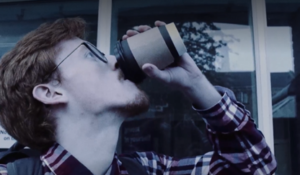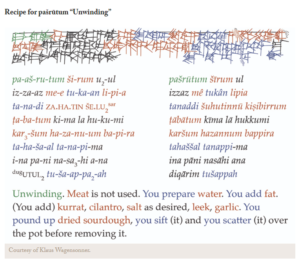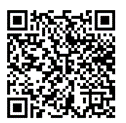This semester, the Living Lab has set out to produce a cookbook that acts as a snapshot of student food cultures in 2023. From Tiktok food trends of cube croissants and cronuts, to a reluctant vegan-uary, and discourses on mass produced convenience foods, there has been a boom in social interest in food and food production over the past few years. This interest has taken form as many new cooking shows and tutorials, articles and speculation on the stark contrast of certain, quite interesting diets (i.e., raw vegans vs raw meat diets), but for the cookbook, we are encouraging students to shape it however they choose.
Our relationships to food and drink goes beyond simply what we are consuming, but what the story is behind it. There are numerous factors that impact what and how we eat—such as budgeting and time constraints, cooking skill, family history, and health issues. But there are also more personal anecdotes attached to certain dishes— the experience of trying it for the first time, being taught how to cook it by a family member, a religious or cultural significance, or perhaps there is a ritualistic element involved. Similarly with drinks, did the celebrity endorsement of negroni sbagliato (Ooh… stunnin’) interest you in making your own? Or do you, like me, sit at your desk with a trifecta of drinks?

Watch here.
On Monday, we held our first cookbook workshop. To commence the project, we pulled up a chair at the dinner table, introduced ourselves by our favourite dishes, and started to consider what we would like to go into the cookbook and what form it should take.
Mhairi Fox, who is interning with Catering and Estates, got everyone up-to-date with the aims and advancements of the canteen and shared some of their work. Using deeply shocking statistics on single-use cups, Mhari’s short film was an equally horrifying and hilarious way to encourage students to reconsider single-use cups and highlight the university’s new reusable cup initiative.
This was followed by a mini lecture on the history of cookbooks, curtesy of Elodie Duché. Taking the workshop back to the very beginning, to the first ever cookbook created in Ancient Mesopotamia (1750 BC)! These recipes did not have any specific measurements, but were particularly interesting as they marked a change in cooking habits- people were now cooking in liquid instead of directly over flames.
Below is an example of one of the dishes, as translated by Klaus Wagensonner:

Elodie broke down the key ingredients of an interesting food story:
- An address to the reader, with prescriptive ideas about what people should eat or questioning norms.
- A record and testimony of lived experience and daily life (such as Martha Lloyd, a close friend of Jane Austin, who used her cooking to appeal to the hearts of vicars).
- An opportunity to express identities and/or reflect on memories (exploring nationality or personal identity).
- A collective canvas to share and discuss ethical and aesthetic systems and values (such as the Victorians and their love of table cloths and of colour palettes for dishes).
- A piece of literature and creative writing.
To spark the conversation, some of the lecturers shared their own food stories, all of which shared the common theme of trial and error. I don’t think I will be forgiven if I post their cooking mishaps on the internet, but I will share my own. I, like the Mesopotamians, am an enthusiast for stews and also don’t tend to measure quantities, though perhaps I should. Below is taken from my example of a chunky veg stew:
When you’re only feeding yourself, it’s very easy for fresh food to end up going off in your fridge. So, each week the veg I had would be used in a variety of dishes, with a different flavour added to them. Soups and stews are an easy way to use up whatever veg or meat you have leftover, and if you’re always tired or in a rush it can be left in a slow cooker or made as a big batch to last a few days
Note: Please don’t make the same mistake as me, read the packet if you’re using cornflower.
We had many exciting initial responses, from family favourites, to cultural dishes, to lockdown recipes. As these start to get written up (and possibly trialed out), we encourage students from all disciplines to get involved in the cookbook project in the various different roles we have available. We are seeking:
- Writers: creating recipe and food story submissions
- Editors: editing the submissions and assisting in the publishing process
- Designers: assisting with the design of the cover and cookbook layout
- Communications officers: creating promotional materials (posters, social media posts etc) according to need and personal interest
To send in your submissions:
Please include a title, ingredients, methodology, and your food story. We aim for the food stories to be between 200-600 words. Send submissions to lucy.hurst@yorksj.ac.uk.
If you would like to be involved in further research on student eating and shopping habits conducted by student researcher, Maia, please follow the QR below.



